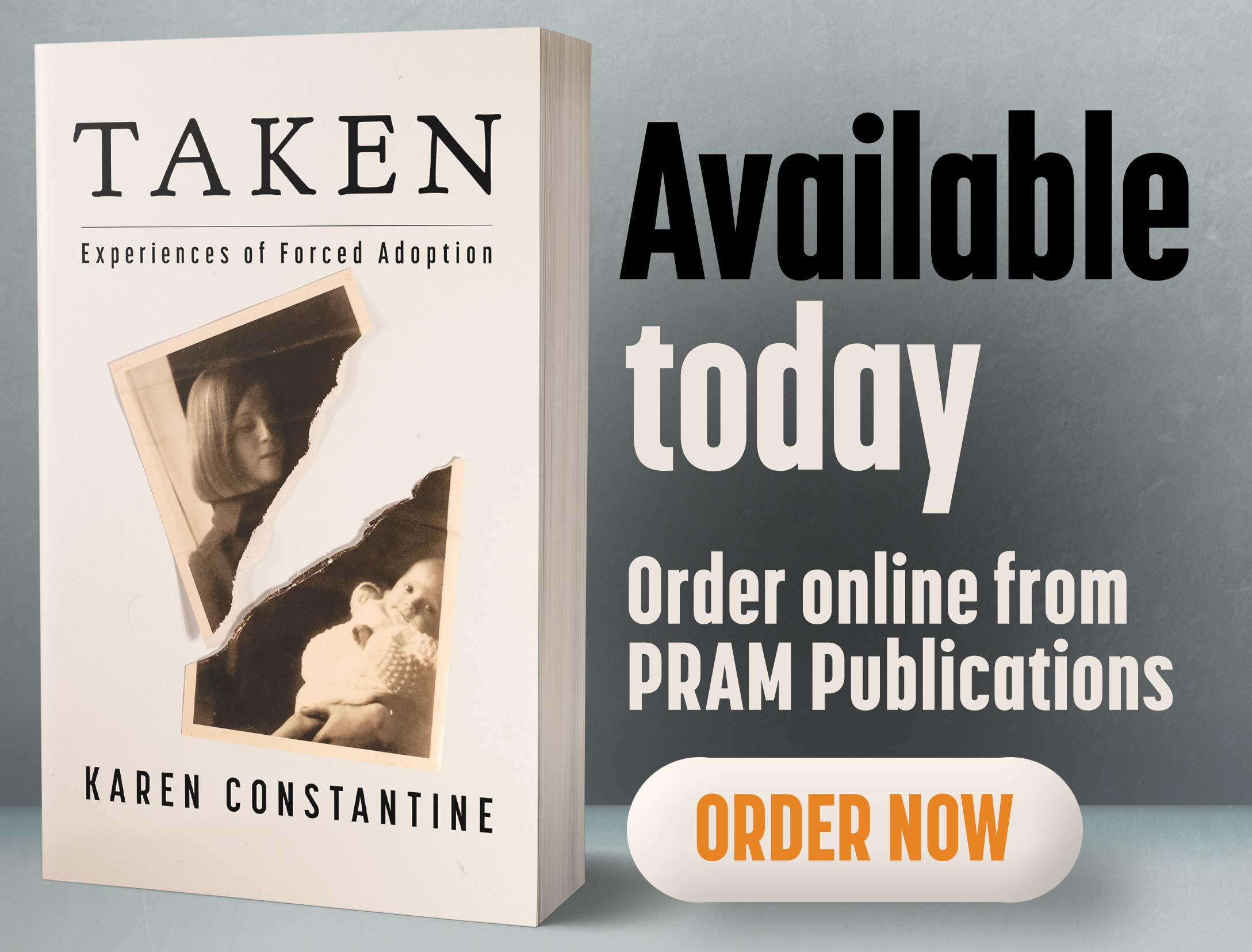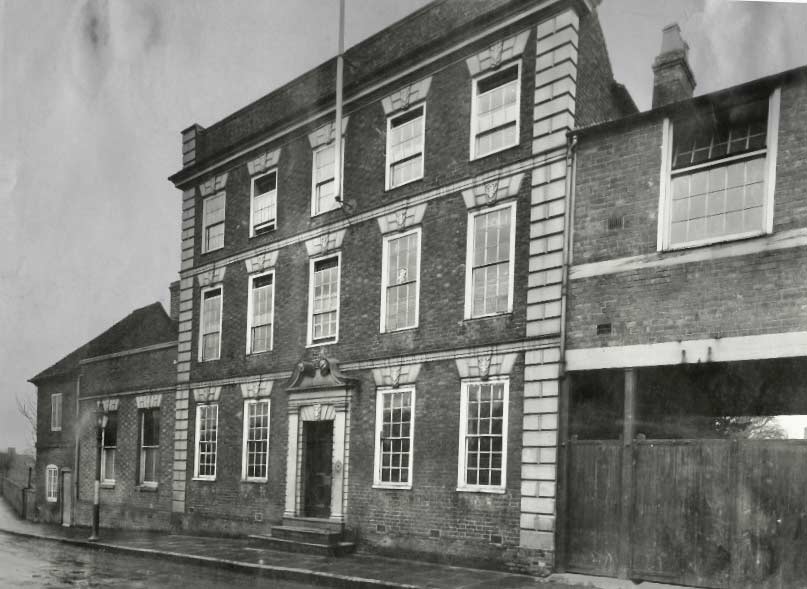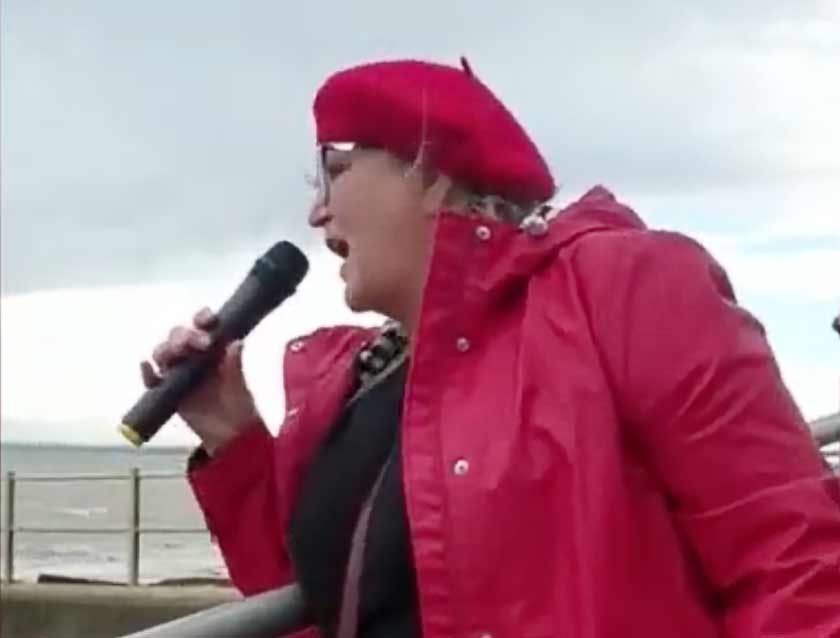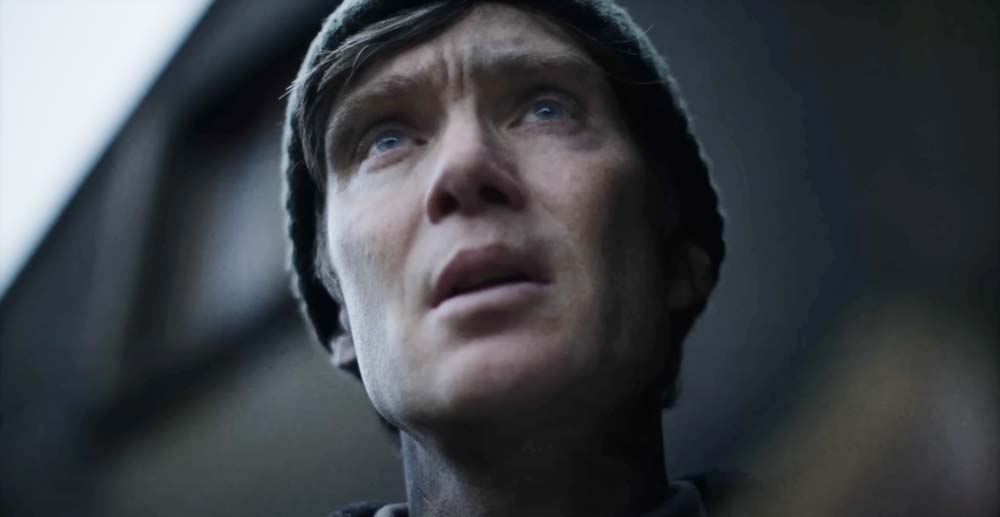
I’d long admired Claire Keegan as a writer, it’s hard to think of another author who elicits emotion as powerfully as she does. However, I’m only a recent member of the Cillian Murphy Fanclub. Of course, I’ve enjoyed the odd episode of Peaky Blinders and watched Oppenheimer (on the small screen), he seemed to be a solidly good actor.
Cillian Murphy: A-list coalman
I was unsure of how Small Things like These would transfer cinematically. Perplexed, perhaps overly so, by quite how handsome Cillian Murphy could transform into a 1980’s, rural Irish coal-man – it’s an occupation, not much associated with A-list glamour. The complexities of Keegan’s characters, the sparse dialogue, a narrative, spanning a generation, and the difficulties of recreating that era authentically, would surely be a challenge.
But with my own personal lived experience, I had long anticipated viewing the film. How much of myself might I see on the big screen? Would it be triggering and reflect the experience I’d endured in the late seventies? I was intrigued, especially as social media interest grew and I saw huge posters splashed across the Victoria Line. I was at the ‘couldn’t wait’ stage, and frankly, that doesn’t happen much anymore.
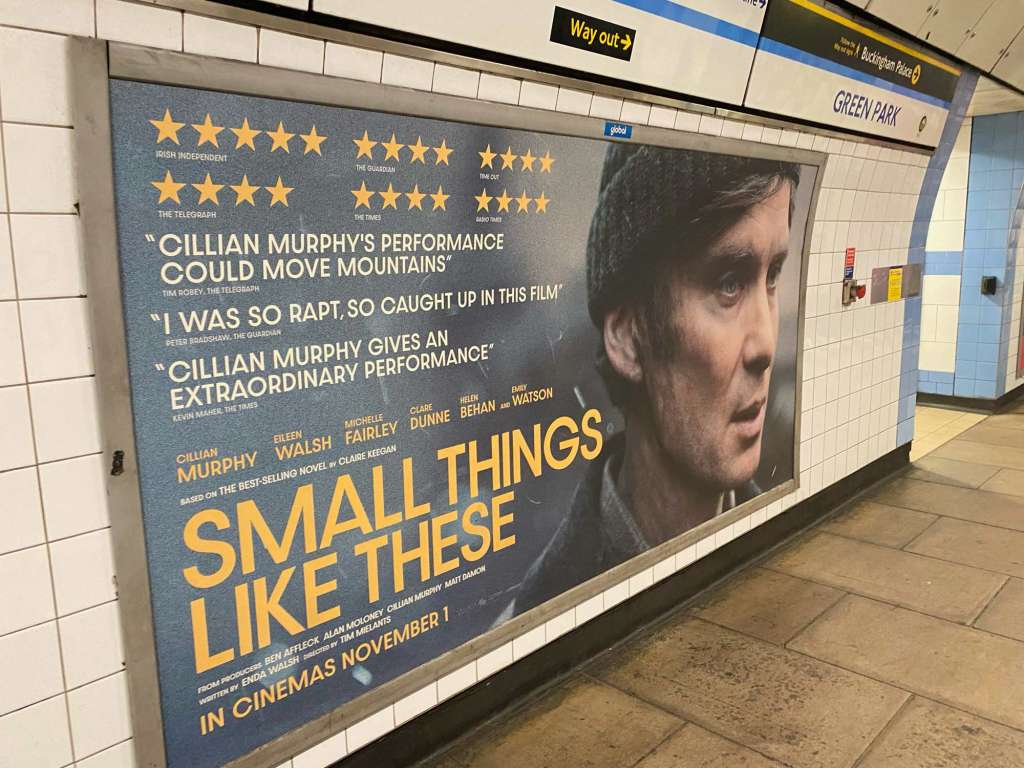
I went to see an early release at the Bath Film Festival on Saturday 19th October with a group of eight other people, all of whom, one way or another, were impacted by the practice of sending away young, unmarried mothers into mother and baby homes. These homes were often run by churches. In my case, St Paul’s was a Catholic organised venture. I was just fifteen when I was despatched to Father Hudson’s in Coleshill, many miles from home.
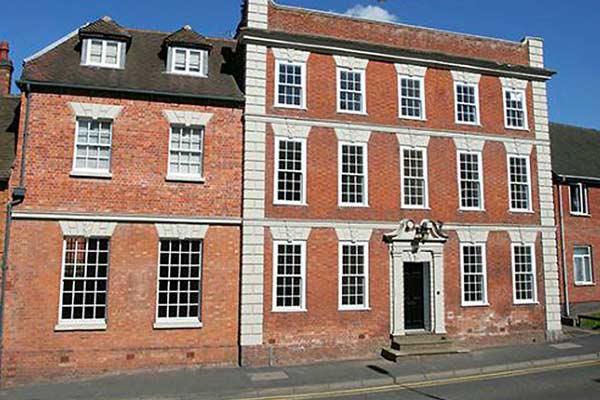

The acting, camera work, sound and colour pallet are all truly spellbinding. Producer Matt Damon and co have created, what I am certain many others better qualified than myself, will consider a brilliantly executed film. Its complexity and hidden subtexts are perfectly balanced. The visuals — costumes and sets — are authentic, right down to glimpses of Danger Mouse on the Furloughs’ TV. You almost want to wash your own hands the coal dust is so real. The music, too, is genius; the film opens to a few bars of Dexy’s Midnight Runners’ ‘Come on Eileen’. We all knew what was meant, “ahhh come on Eileen…”
Small Things like These unspools flawlessly, drawing the viewer in. It’s a film full of parallels; Bill Furlough’s own childhood, a story only partially revealed, those girls and Bill’s own daughters. The glitter and religion of Advent, the gratuitous cruelty. The dishonest immorality of Sister and the searing honesty Bill is forced to confront and act upon.
The honking, barking Geese transported me surprisingly, back to my Catholic grammar school, St Dominic’s in Stoke. Our Nuns kept geese. Was that a nun thing I wondered? Coal bunkers and coal sheds featured in the battle for warmth – in circumstances where human warmth was sorely lacking. The twinkling delight and promise of Christmas, and that somehow being ‘fallen’ meant exclusion. No gifts for sinning girls…. No modern-day manger. Virgin births only. Ultimately Small Things like These punches a hole in the thin veneer of Catholicism. It more than hints at the monsters of Tuam, Bessborough, and other homes where atrocities occurred, which only now are being dug into. And you do see Cillian digging and digging.
The ‘girls’ in the home, the Magdalene laundry, sweat in the heat and the stream even before dawn has broken; their working day has begun. Others are viewed meekly on their knees polishing. The girl who is forced through the doors by her mother cries out to her own father, who (no spoiler) does nothing to save her.
All girls abandoned to these homes ultimately suffered the same fate. Jettisoned by family, hidden away for ‘shames sake’. Forced to work (I too had laundry duties and was instructed to iron until the iron was cold…), all taught a lesson we couldn’t forget.
Small Things like These is a great film. Cillian should win an Oscar, or a Golden Globe, I’m sure he will. I didn’t see myself on the screen, it wasn’t what I experienced, it was so much worse, much more barbaric, but even so, it echoed so much of what I felt. Lost. Lonely. Isolated. Scared. It amplified how a religion preaches one thing – but acts in a contradictory way. And how that influences those around you.
I hope one day to see a film that represents the British experience. In fact that’s my next novel — When Dogs Barked at Cars — Cillian may audition for the lead role if he chooses.
